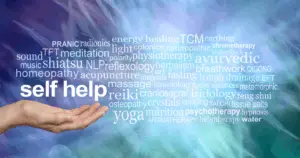Reiki is a non-invasive healing technique, but there is no universally recognized licensing system for practitioners in the U.S.
In exploring the realm of Reiki certification, I’ve discovered that the path toward becoming a registered Reiki practitioner isn’t lined with the same regulatory markers as other health professions. Given that the Reiki licensure requirements vary greatly from state to state, those interested in pursuing Reiki as a career or as a treatment option should be aware of these inconsistencies.
My journey to understand the regulation of the profession taught me that while the Reiki Licensing Commission for Reiki Masters and Healers does offer guidance, the actual legal status of Reiki practitioners largely remains in a grey area. I’m excited to share what I’ve discovered about this intriguing therapeutic practice and what it means for those looking to either practice or receive Reiki.
Key Takeaways
- Reiki is a non-invasive healing technique, but there is no universally recognized licensing system for practitioners in the U.S.
- Certification and titles for Reiki practice are available through various organizations, but not legally required in most states.
- States have different stances on Reiki practice, with legislation and regulation differing widely.
- The International Association of Reiki Practitioners (IARP) offers membership to support professional practice.
- Understanding the local laws and certifications can be crucial for both practitioners and those seeking Reiki services.
Understanding Licensing for Reiki Practitioners
Different states adopt varied regulations that could either confine or permit the practice of Reiki. It’s pivotal for anyone interested in how to get licensed as a Reiki practitioner to stay abreast of the changing rules and exemptions that may affect their practice.

In my exploration of this subject, I’ve observed a notable dichotomy in state approaches to Reiki. Where some have imposed stringent laws that can potentially hinder practitioners, others take a more lenient stance, aligning Reiki with similar healing modalities like massage therapy.
This has led to an ongoing effort by the Reiki community to navigate these legal waters and protect their right to practice. The creation of a Legislative Committee by the International Center for Reiki Training exemplifies the proactive steps being taken to mitigate restrictive legislation.
Interestingly, the legislative rhythm differs widely between states, with those operating full-time legislatures examining bills throughout the year, contrary to part-time legislative states. This results in varied timelines and outcomes for laws affecting Reiki practice.
Yet, despite these diverse governmental operations, the Reiki community has seen some progress in the form of “safe harbor exemption laws” adopted by several states. Such laws are crucial lifelines, allowing unregulated complementary health practices to continue without the need for a formal state license.
- States with Restrictive Laws on Reiki
- States with Safe Harbor Exemption Laws
- Efforts by the Reiki Community to Safeguard Practice
| State | Regulatory Stance | Safe Harbor Law Status |
|---|---|---|
| New York | Attempts to regulate alongside massage therapy | No |
| California | More lenient and inclusive of Reiki | Yes |
| Texas | Restrictive laws impeding practice | Under Discussion |
| Minnesota | Permits unlicensed complementary health practices | Yes |
In my continuous interaction with the community, it’s evident that the collective effort to expand safe harbor exemptions is alive and growing. Reiki practitioners like myself must remain vigilant, however, as local ordinances could emerge that challenge our capacity to practice freely. This underscores the crucial nature of being informed and engaged, which is why I advocate for aspiring Reiki healers to familiarize themselves with the local laws and actively participate in these important legislative conversations.
Pathways to Becoming a Reiki Master
Embarking on the journey to become a Reiki Master is a transformative experience, one that is enriched with deep learning and personal growth. This path demands dedication and enthusiasm for mastering the intricacies of energy healing.
As I delved into the realms of reiki practitioner training, I discovered that the path was non-linear, offering diverse routes of education and certification—all designed to embolden practitioners with the wisdom and techniques necessary to foster healing and balance.
Reiki Practitioner Certification and Training
The initial step for aspiring Reiki Masters like myself is to complete a structured, progressive training program. It usually begins with accredited reiki programs at Level One, where the focus is self-healing, advancing to Level Two with a deepened understanding that extends healing to help others, and finally culminating at the Reiki Master level.
My certification did not come easily; it required diligent practice and learning about the subtle energy bodies that inform Reiki techniques. Throughout this journey, the variety of reiki practitioner certification paths I encountered served as a testament to the rich tapestry of this healing practice.
Licensing Versus Certification for Reiki Practitioners
The reality is that in the absence of consistent reiki licensure requirements, many, including myself, turn to certifications from reputable bodies to cultivate credibility and demonstrate our commitment to the craft.
Reiki Licensure and Formal Education
The debate over the necessity of formal education in the absence of stringent reiki licensure requirements continues to be a topic of discussion among my peers. While some registered reiki practitioners may pursue additional qualifications in areas complementary to Reiki, such as massage therapy, the practice itself does not mandate such formalities. It bears noting, however, that a multifaceted educational background can indeed enrich the therapeutic experience we provide.
Reiki Licensing Commission Grades and Titles
Last but not least, the Reiki Licensing Commission offers a range of titles, from Licensed Reiki Apprentice Healer to Licensed Reiki Master Instructor, each reflecting the practitioner’s depth of experience and expertise. These designations, while not widely required due to the diverse reiki practitioner license landscape, offer an internal structure and recognition within the Reiki community that many of us find valuable.




